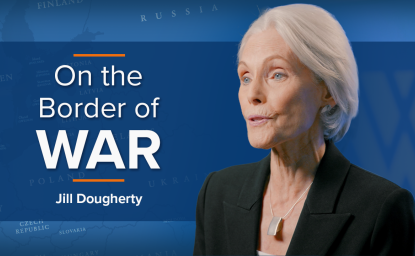By Peter Bean
From dealing with the Jim Crow laws, to the Voting Rights Act, to minority-majority redistricting, African Americans have engaged in a century long effort to reorganize the American political system to secure fundamental political rights. For her forthcoming book, Woodrow Wilson Center Fellow Dianne Pinderhughes is examining the evolution of civil and voting rights organizations and African American politics in the twentieth century.
"My research evaluates how political participation that was reaffirmed and strengthened by the 1965 Voting Rights Act was crafted as the pinnacle achievement of the movement for Civil Rights, and how the development of voting rights law in the courts, the Congress and administrative policy has evolved in the last four decades," Pinderhughes says.
Pinderhughes argues that conventional analyses of interests groups don't fit developments within African American and civil and voting rights policies. "I, and others, argue that there are inconsistencies, to put it mildly, in the way in which the system functions for the rest of the population versus the way it functions for African Americans."
One of Pinderhughes' central arguments is that the tendency of most Americans to divorce economic rights from political rights works against African Americans. "A lack of economic opportunity creates an incomplete conceptualization of citizenship," Pinderhughes explains. "Gaining income and acquiring wealth has been tremendously difficult for African Americans. It's another contradiction in American political values. When you look at the reality of American political and economic history, the ability to compete and work successfully has been a struggle for African Americans, both before and after the passage of civil and voting rights legislation."
Post-slavery de facto and de jure segregation led to the formation of racially-based organizations in the first half of the twentieth century. Early organizations such as the NAACP (1909) and the National Urban League (1910) primarily consisted of African Americans and focused on African American issues, though they were linked to broader civil rights goals. In the 1930s through 1960s, however, the once-homogeneous groups had formed broader coalitions to better lobby legislation. The crowning achievement of the voting rights movement was the 1965 Voting Rights Act.
While the first part of Pinderhughes' book explores theoretical contradictions incorporated in American politics that African Americans have been working through and the organizations they created to deal with them, the second part of the book explores the maturation of the voting and civil rights movement, its increased specialization, and its impact on the character of the policies.
Pinderhughes argues that, following the 1965 Voting Rights Act, the civil rights movement devalued and paid less attention to broad and heterogeneous coalitions, while innovation in policy development and large-scale mobilization slowed. "The increased specialization of organizations, in conjunction with less civil rights protest, meant that people concentrated on one dimension of civil rights policy, such as voting rights, but they didn't necessarily do so as a result of efforts arising out of grassroots activities," Pinderhughes points out.
"It's led to a certain kind of a more professionalized approach to the law. This is a criticism of the evolution of the policy. I'm also arguing this led to a singular strategy approach; in this case, the minority-majority district strategy, as opposed to choosing a broader range of legal and political strategies to remedy the lack of political representation."
According to Pinderhughes, the main problem with this increased specialization among African American interest groups is its incompatibility with the specific problems African Americans face. "While specialization is the conventional orientation in most of American politics, that specialization is more problematic when you're talking about African American voters, given the patterns of not fully developed citizenship, and the political and economic issues they face." Pinderhughes contends that the broad African American audience was left behind while professional, specialized interest groups pursued more narrowly focused civil rights strategies.
The last part of Pinderhughes' book explores the forthcoming challenges facing the voting rights movement, especially as the Voting Rights Act expires in 2007. Congress has extended the Voting Rights Act three times since 1965 (1970, 75, 82). Pinderhughes believes developments in the political climate over the past 15 years will make renewal in 2007 a challenge. "All of the policy development that has occurred over the last 15 years has emphasized an orientation toward policy that would not reaffirm or renew the VRA. Concerns about affirmative action, and group rights in general, will be abundant. Neoconservative individual rights groups have very successfully attacked the concept of group rights policies over the last 15 years."
According to Pinderhughes, however, the Voting Rights Act can and should be renewed. "The history of American political participation has incorporated profoundly group-based patterns of discrimination, so the remedies have been and should be organized and structured in that way in order to address the past evidence of discrimination."
Pinderhughes insists that civil rights organizations are going to have to be more creative and open-minded than they have been over the past 25 years. "Instead of engaging in a direct response to the challenges posed to their voting rights policies, they have been simply reaffirming the same arguments that had been used over the previous decades. The groups will also have to explain, on an ongoing basis, the foundations of policies oriented toward racial and ethnic groups. I think the argument needs to be reexamined, not necessarily to take a different position, but to make sure the argument is flexible enough to respond to those criticisms."
Ultimately, Pinderhughes believes, the political solution for African Americans must include economic progress. "I think that my contribution is to be able to force people to see that you must closely integrate the concept of political status and economic status within the concept of citizenship. You cannot talk first about political rights and then economic rights—rather, the two intersect. It's not a radical addition to the agenda, but it is difficult to address because the larger society does not see economic issues of or for African Americans as a legitimate part of the political sector's responsibilities, when in fact it is."
Related Links


